5 TV series that can help you perfect your German
When deciding to learn a new language, the first thing that comes to mind is to find an adequate language course that can ideally fit in our everyday schedule. But what about a good TV series?
Lessons are undoubtedly a fundamental point for departure when learning a language, but at times it might not be enough. Learning a new language means accessing to a new way of thinking, opening our mind to a new culture. Essentially, learning a language implies not only knowledge of the grammatical rules and the lexical, but also knowledge of the so-called pragmatic language, everyday expressions and spoken terms. If one doesn’t have much contact with native speakers, watching TV series in the original language can be a very useful means through which one can learn new expression. Terms that we would otherwise not know of through a strictly theoretical study. For this reason we would like to propose a few German TV series, very different from one another, that might help you further your knowledge of German.
1. Türkish für Anfänger
“Kebab for breakfast” is one of the most notorious German productions. The series, which lasted for 3 seasons, it set in Berlin, the German city with the highest concentration of Turkish citizens. The storyline is about an enlarged family made up of a Turkish man and German woman, both with adolescent kids. It is a funny series, that opens a window on Berlin’s multiethnic social fabric. It is suitable both for young people and adults. In 2007 it won the Civis Media Prize in the entertainment category for having promoted the integration of family that have a foreign background.
2. Stromberg
Stromberg is one of the most appreciated German TV series. Five seasons that tell the story of Stromberg, a manager of an insurance firm by the name of “Capitol Versicherung AG”. It is the German version of the American series The Office, portraying life in the office in a funny way. This series, however, is not advisable for beginners due to the fact that a lot of the irony derives from word games. It remains nonetheless a rich source of everyday expressions.
3. Gute Zeiten, schlechte Zeiten
It is a German soap opera of 1992 that had a 6 million audience count. The story is set in an imaginary neighbourhood in Berlin and it recalls the Australian series The Restless Years. Unlike other soap operas that portray the life of families belonging to a high social background, this one focuses on the life of young people and for this reason it is very appreciated by a younger audience.
4. Tatort
Tatort is a police genre TV series. It is the longest one as it has been broadcasted since 1970. The commissioners are at the center of each episode, lasting about 90 minutes. The episodes are quite plausible and, unlike other police series, the various regional broadcasters of ARD are responsible for their territorial spheres and their investigative theme. The series is shot in different cities in Germany. Berlin, Munich, but also in other countries, in Vienna and Lucerne. For this peculiarity it is very useful to learn different accents, to know more of the city and to get an idea of German speaking countries.
5. Die Sendung mit der Maus
Der Sendung mit der Maus is one of Germany’s most famous animated series. It was first aired in 1971 and it is intended specifically to a young audience, between 4 and 9 years of age. Following it is also very useful for who doesn’t really know the language and finds more comfort in linear stories. This TV series has been recalled “the school of the nation” precisely due to the way it helps its audience to learn and assimilate the fundamental lexicon in different settings, from history to science.
Cover photo: © Youtube
————————————–
Do you wish to learn German or perfect your knowledge? Then take a look at the German courses that Berlino Schule organizes in Berlin here!

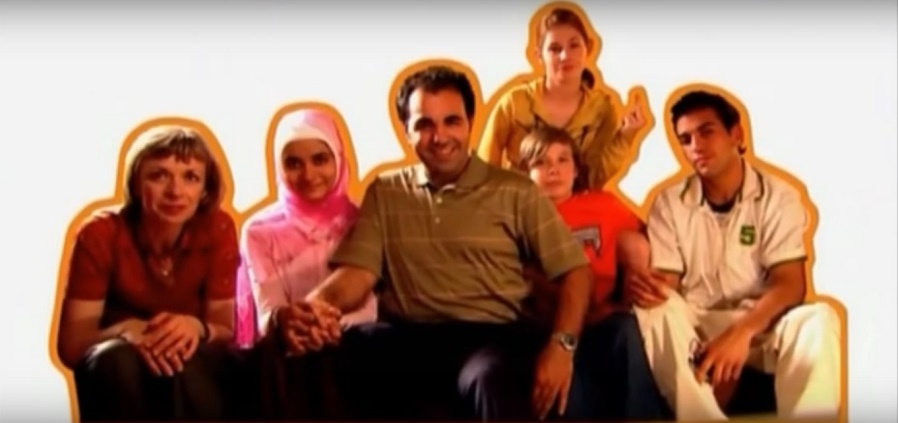
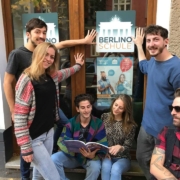
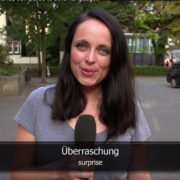

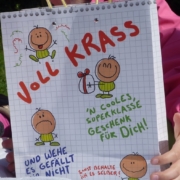
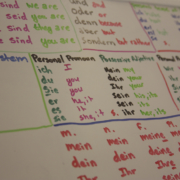

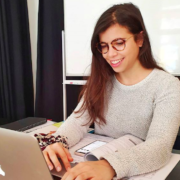 Berlino Schule
Berlino Schule 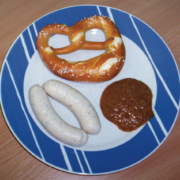


Leave a Reply
Want to join the discussion?Feel free to contribute!